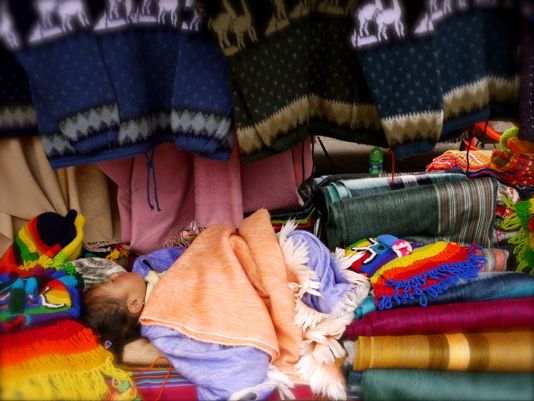 It is folly trying to experience Ecuador in just seven, short days. Consider: It is folly trying to experience Ecuador in just seven, short days. Consider:
The country has four wholly distinct eco-systems:
- The Coast, famed for beaches, surfing and diving.
- The Andes, famed for mythical volcanoes and indigenous culture
- The Amazon, famed for unparalleled bio-diversity, and;
- The Galapagos, perhaps the last unspoilt natural wonder left on earth.
There are more animals and plants per square kilometre in Ecuador than anywhere else. The world’s second largest number of endemic vertebrates, third largest for amphibians, fourth for birds, fifth for butterflies. Over 10% of all vertebrate animals on the planet, 35% of all hummingbirds, 10% of all plant species, all slammed together in just 0.19% of the earth’s surface. All this, and we haven’t even got to the country’s indigenous people, Spanish colonial history, colourful markets, and taste for guinea pig. Pure folly then, but what the hell, I’ll give a go anyway.
Ecuador was the last major South American country for me to visit, a gaping Latino hole for me to plug in my global itinerary. The opportunity presented itself while filming Word Travels, and now there is only Guyana and Suriname left. Everyone dreams of visiting the Galapagos, but not everyone has to contend with outrageously expensive film permits, or balls to the wall production schedules. Instead I would focus on the people of the highlands, the history and haciendas, myths and mystery, with a little coastal action throw in for good measure. I had just a few hours to acclimatize to Quito, 2850m above sea level, where walking up a flight of stairs at Old Town’s Hotel Patio Andaluz left me searching for breath. The hotel, like Old Town itself, is a carefully preserved testimony to Spanish Colonialism, which is why UNESCO declared Quito’s Old Town a World Heritage Site in 1978, the first such classification of its kind. A late arrival, early departure had me and the crew on the bus towards Otavalo, a town in the the central highlands, leaving the sprawling city behind. Grinding up steep switchbacks, over mountains brushed with shrubbery, the city sprawl thinned out with the traffic. Flipping through my US dollars, which replaced in the local sucre as official currency in 2000, I was thinking about what makes Ecuador distinct, a nation apart from its neighbours, the former Gran Colombia dreamed up by South America’s liberator, Simon Bolivar. Gran Colombia included most of modern Venezuela, Colombia, Panama, and Ecuador, before Bolivar was dethroned, and his generals sliced and diced their territories into the counties we know today. Ecuador shares Andean and indigenous roots with neighbours Peru and Colombia, along with simmering border disputes. I was thinking about the Galapagos Islands, Darwin’s playground, located some 1000km west into the warm Pacific Ocean. Much to chew on, and I was about to chew on a whole lot more. Click to continue reading
< back to the episode
< back to the list of articles |

